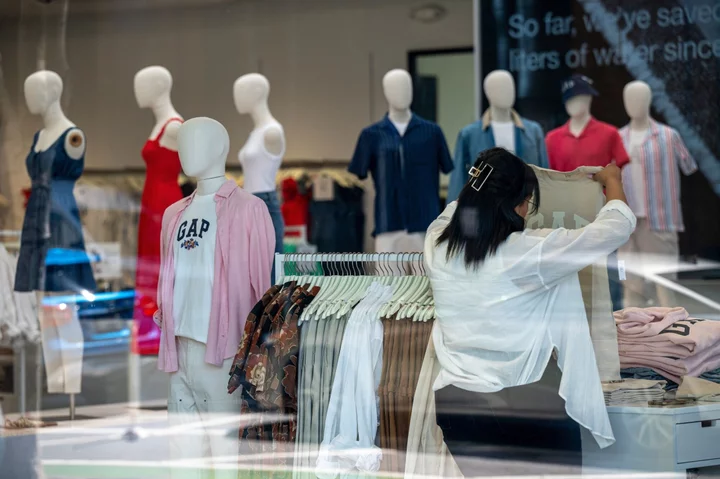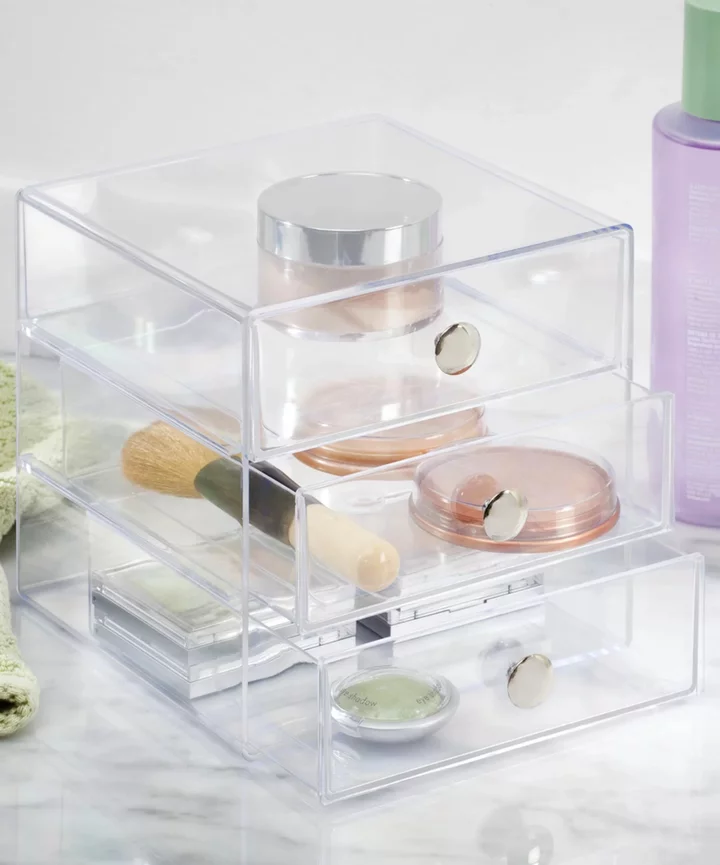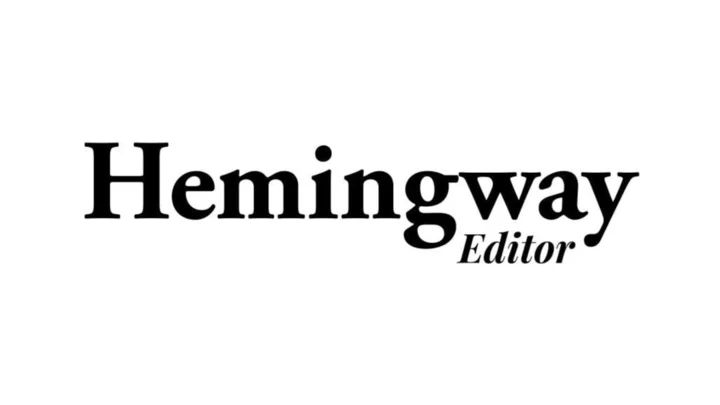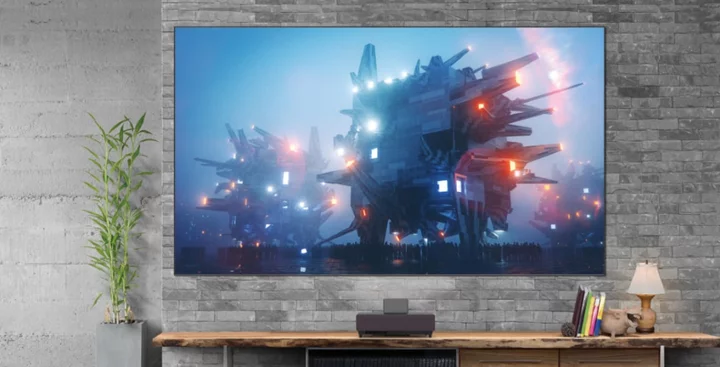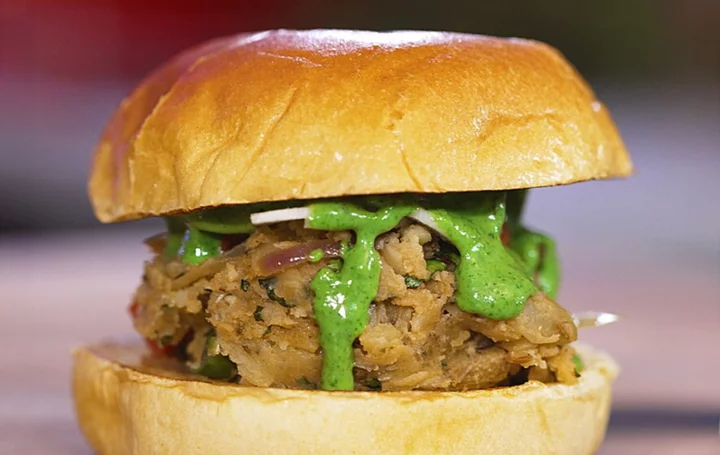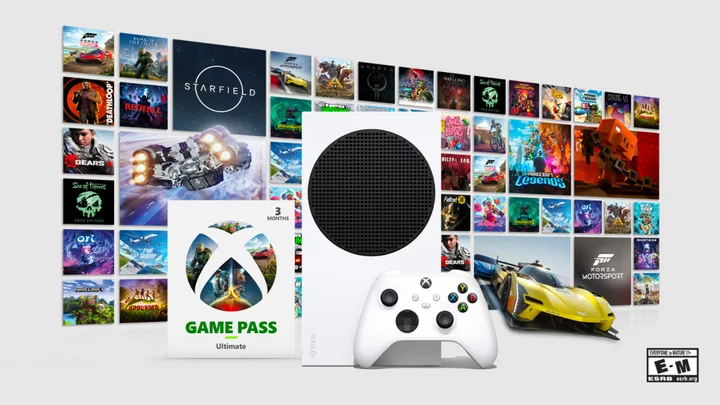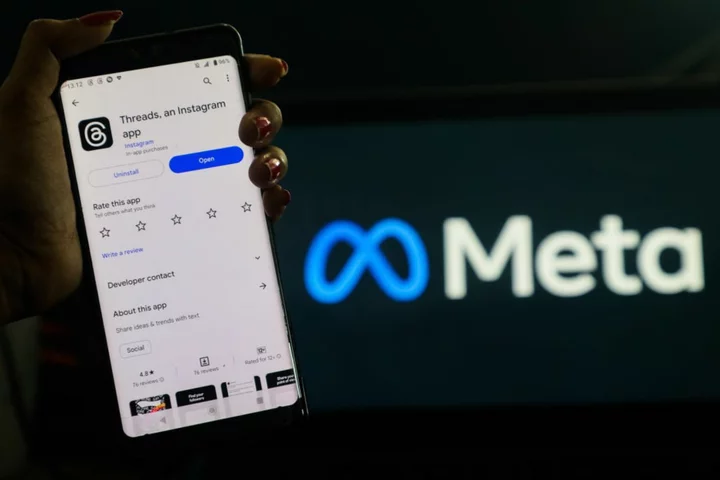Gap Inc.'s latest turnaround plan looks awfully familiar so far.
To shake itself from a funk that has lasted 20 years, the retailer has routinely pinned its hopes on chief executive officers who promised fresh ideas. There was someone from Disney and then a drugstore retailer. One had a consulting background and another knew supply chains. But none of them were able to execute a comeback with staying power.
Now Gap’s board is betting on a marketing guru. Of the five CEOs since Mickey Drexler led the company’s meteoric rise in the 1990s, Richard Dickson’s arrival might have received the most attention. He’s been credited with reviving Mattel Inc.’s Barbie brand twice in his career, and his latest success looked even bigger when the Barbie movie became a smash hit.
A closer look at Dickson’s resume finds mixed results, though. He already had a stint at a troubled apparel retailer that didn’t end well. And while Barbie and Mattel grew during the pandemic as the toy industry boomed, sales have been declining recently.
Meanwhile, Gap’s hurdles are mounting. For the last several years, growth at Athleta and Old Navy helped make up for weakness at Banana Republic and the Gap banner, but now sales at both brands are falling. The company’s market value has declined about 70% from its Covid peak to $3.5 billion, which is roughly a tenth of where it was at the turn of the century.
What plans Dickson has for the company may be discussed on Thursday when he speaks on Gap’s earnings call. It will be just his third day as CEO, but his ties to the company date back to November when he joined the board. The company is expected to report a third straight drop in revenue.
“Ultimately, Gap’s problem is that it doesn’t have any sales growth,” said Morningstar analyst David Swartz. “At some point, you have to show brand relevance.”
Gap declined to comment for this story.
Dickson will follow a string of CEOs since the board ousted Drexler in 2002. The company first turned to Paul Pressler — the former head of resorts and theme parks at Disney. Five years later, Glenn Murphy, who had led Canada’s largest drug store chain in a period of solid growth, took over.
Next Art Peck, who started his career at Boston Consulting Group, took the helm after leading brands at Gap. Sonia Syngal then replaced him after a successful stint running Gap’s supply chain and Old Navy. But she lasted about two years as sourcing problems hurt results during the pandemic.
All the turnover in the C-suite has left the company flailing at a variety of strategies. Its recent attempts at buying brands and launching concepts have mostly flopped. In 2021, it sold Intermix, the luxury retailer it bought in 2012, and Janie and Jack, a kids’ brand it owned for two years. Operations at Hill City, a men’s activewear retailer, shut down after Syngal took over as CEO. And a partnership with Ye, the rapper and designer formerly known as Kanye West, faltered last year.
Dickson, 55, is known for thinking big and not being afraid to shake things up. At the top of that list was a successful overhaul of Barbie that included transforming her look with wider hips and half a dozen skin tones. Investors appear to be counting on that kind of change, with Gap’s shares gaining since the company announced his hiring last month after searching for a year.
During two separate stints at Mattel, Dickson used audacious marketing to generate buzz around Barbie, but the sales gains often didn’t last. To boost the doll’s profile, he had strategies such as enlisting Vera Wang to create looks and convincing Mattel to spend a reported $30 million on a six-story Barbie store in Shanghai with its own karaoke bar and beauty salon.
All the publicity paid off as Barbie sales rebounded. Fresh off that success, Dickson left in 2010 to run Jones Apparel Group, the owner of several brands including Nine West. But soon after, all that buzz from Dickson’s marketing faded and Barbie began to struggle. The Shanghai flagship shuttered.
Retail Experience
At Jones, Dickson, who worked at Bloomingdales and Estee Lauder earlier in his career, tried to revive its brands by boosting design and styling. But growth and stock gains remained elusive, and the company sold to Sycamore Partners, a private equity firm that specializes in troubled retailers and brands.
A few months later in May 2014, Dickson returned to Mattel, but this time as chief brands officer. Sales for Barbie and Mattel were mostly stagnant or declining until big gains during the pandemic. Over the course of Dickson’s second tenure with the toymaker, the shares fell by about 40%.
After a marketing blitz, including turning a Southern California mansion into a Barbie Dreamhouse, the Barbie movie had the biggest opening weekend of any film this year. It has since grossed more than $1 billion globally and pushed the brand into the zeitgeist, but it remains to be seen how much the movie will boost Mattel’s sales. The toymaker reiterated in July that it expected revenue to be flat this year, although the company expects Barbie to grow.
A concern beyond whether Dickson’s ambitious strategies have staying power is that they might get held back by the Fisher family, which founded Gap in 1969. William Fisher, the son of the founders, is on Gap’s board and the family remains one of the largest shareholders.
“The place has been a revolving door of executives,” Swartz said. “The problem ultimately is the Fisher family. They bring people in and don’t give them a chance to do what they need to do.”
Other analysts are optimistic, though. Dickson’s “strong combined history of brand reinvigoration and prior apparel experience comes at an opportune time for Gap,” Goldman Sachs analyst Brooke Roach wrote in a recent research note. The retailer has been making progress on some key initiatives, such as simplifying operations, she said. That included cutting 1,800 jobs earlier this year.
Turnarounds in retail are rare, but Abercrombie & Fitch Co. and Crocs Inc. have recently showed that they are possible with those brands bouncing back after years of losing relevance. Gap also doesn’t have any bonds maturing until 2029, so there’s plenty of time for Dickson to enact his plan.
“The company is not in any danger of financial distress,” Swartz of Morningstar said. “I don’t think it’s impossible to fix.”

